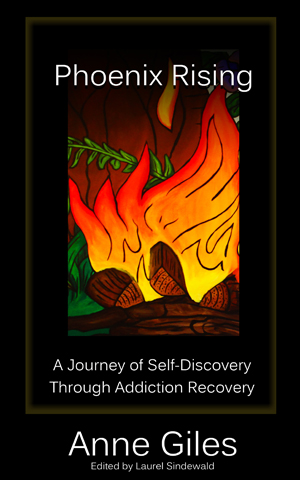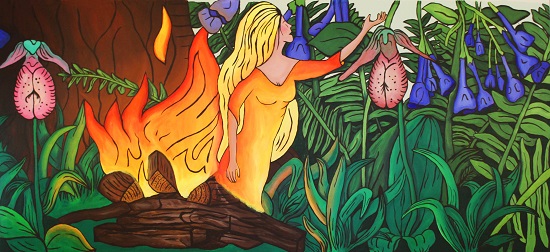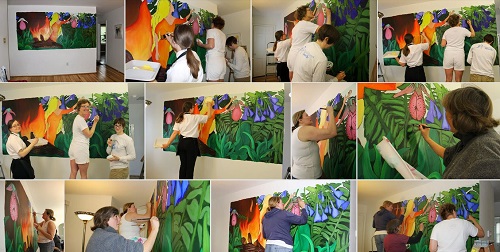Would you feel ashamed of yourself if you discovered when you tried to quit drinking or drugging, you couldn’t stop? Would you feel ashamed of finding yourself with these thoughts: “I’m an alcoholic” or “I’m an addict”?
Would you believe that some flaw in you had led to your addiction, that it was something you had done or failed to do? That who you are and something about how you drank or used – even that you drank or used in the first place – was the result of personal flaws and failures? That somehow you’re to blame for your addiction and, if you seek help, for the course of your recovery?
Brené Brown defines shame as “the intensely painful feeling or experience of believing that we are flawed and therefore unworthy of love and belonging – something we’ve experienced, done, or failed to do makes us unworthy of connection.”
If you did feel ashamed of yourself – “unworthy of connection” – you would be thinking along the lines of the majority. Study after study on the public perception of people with substance use disorders shows that, no matter how well-intentioned people might wish to be, most of them believe that not only is first use voluntary, but continued use as well. The person would stop if he or she really wanted to. That the person doesn’t stop and claims “can’t” is a result of personal weakness, not illness. Or, worse, self-indulgent self-pleasuring. In public.
If they’ve sought help and still struggle, they’re not suffering from the continued effects of a disorder, but choosing to let “their addiction talk” to them. They’re still “selfish,” not willing or ready to let go of self-pleasuring.
They should be ashamed of themselves.
Stereotypes are generalizations by definition, and we would argue that in the case of alcoholism, even if they apply to some (under certain circumstances, for example, intoxication), they hurt many more, particularly those struggling to recover from their illness. Affected individuals have a right to be judged by their personal behaviour, not by the stereotypes attached to a diagnostic label.
– Schomerus et al., 2011
I’ve included a photo of myself in this post. Whatever descriptor you want to use – I developed substance use disorder, am addicted to alcohol, am an alcoholic, am an addict – according to this 2011 study on the stigma of alcohol dependence and many others like it, if you knew I was an alcoholic, you would be hesitant to rent a room to me, work side-by-side with me, and be my friend.
Not that you shouldn’t hesitate. Over about 7 years, I drank alcohol at an increasingly heavy level, way beyond the limits for women or men. Near the end, I started to say things, loudly, angrily, that I regretted deeply later. And I was beginning to fall. A day or two more and you, the public, would have been helping foot the medical bills for my cracked skull. Or the medical and legal, possibly tragic consequences, of me driving under the influence.
If I start drinking again? Don’t rent a room to me. Don’t work with me. My thinking and behavior would be unpredictable, possibly threatening and dangerous. And if you are my friend? Please. Please get me help.
As of this writing, I’ve been 949 days without a glass of wine. Or a bottle. Or any other alcoholic beverage. I am intelligent, educated and self-aware and I absolutely cannot tell you when the shift happened from choosing to have a glass of wine to must. I was in my early-50s at the time. Certainly I had enough age on me and enough life experience to pinpoint when things were going badly and to do something about it? No. I did not.
I do not consider myself a weak-willed, public self-pleasurer. No verb works to describe what happened but I will try: I got mugged, ambushed, hijacked, enslaved, imprisoned, used against my will, overpowered and puppeteered by a force against which every iota of self I possess was worthless.
What I have done publicly is disclose that I am recovering from addiction to alcohol. I made a brutally conscious choice to do this and ran it by my family and advisors before I did so. Given the stereotypes and stigma associated with addiction, and the real threat and harm that those actively drinking and using can do, at this time, in 2015, I do not recommend to others also in recovery from addiction to disclose it. (If you want to reach out to me, I will protect your privacy to the best of my human capacity.)
If you feel ashamed of yourself for recognizing you have a drink or drug problem, give yourself a hug. Shame is at the heart of addiction and feeling ashamed worsens, not lessens, the possibility of recovery. What happened to you happened to me – with regard to substance use, we got robbed of choice. We can now choose self-care, self-calming, self-kindness, self-compassion. These are at the heart of recovery.
Johann Hari reports, “So the opposite of addiction is not sobriety. It is human connection.”
So we can also choose connection with others who see us as we are – individuals with a problem whose management requires daily, sometimes moment-to-moment effort almost beyond bearing. I welcome judgment of my efforts to recover. I reject judgment as a person for having this problem.
And, for own sakes, we have to accept that what has happened to us most people believe we have done to ourselves.
The content of this post is for informational purposes only and is not a substitute for medical or professional advice. Consult a qualified health care professional for personalized medical and professional advice.







